 ou know the shit's gettin' real when you compile a mix tape for someone. It's one of the few perennial mediums through which geeky but passionate boys (and some girls) express themselves since time immemorial. Its enduring role as a pastime for socially-awkward adolescents of all ages cannot be denied, for the mix tape can get oh so very personal in so many cringe-worthy ways.
It's different than merely giving someone a manufactured product from a factory and bought at a store. We like to reckon it's more heartfelt.
More often than not, you've poured your mind, heart, and soul into this ephemeral article, as pathetically as it may be. Giving a mix tape (or perhaps a ripped CD) can be somewhat likened to writing poetry, albeit juvenile and self-important, as opposed to mere prose.
When you give someone a purchased, pre-recorded CD or tape, you're merely writing sentences. When you committing individual selections to tape, you're creating poetry, so you think.
Consider the act of simply removing periods from sentences and arranging them in lines, or lyrics, so to speak. Something magical happens.
You feel stripped. It becomes personal. Words turn into poetry as they reveal, instead of merely conveying. The transformation from mere prose to lyrics demands thought as well as emotions. The text itself becomes art. Whether it's good or bad art is beside the point. Unlike the relative detachment of prose, poetry immediately forces you to reveal yourself and become vulnerable. Poet Louise Glück explained in 1993, that 'poems are autobiography, but divested of the trappings of chronology and comment, the metronomic alternation of anecdote and response.'
ou know the shit's gettin' real when you compile a mix tape for someone. It's one of the few perennial mediums through which geeky but passionate boys (and some girls) express themselves since time immemorial. Its enduring role as a pastime for socially-awkward adolescents of all ages cannot be denied, for the mix tape can get oh so very personal in so many cringe-worthy ways.
It's different than merely giving someone a manufactured product from a factory and bought at a store. We like to reckon it's more heartfelt.
More often than not, you've poured your mind, heart, and soul into this ephemeral article, as pathetically as it may be. Giving a mix tape (or perhaps a ripped CD) can be somewhat likened to writing poetry, albeit juvenile and self-important, as opposed to mere prose.
When you give someone a purchased, pre-recorded CD or tape, you're merely writing sentences. When you committing individual selections to tape, you're creating poetry, so you think.
Consider the act of simply removing periods from sentences and arranging them in lines, or lyrics, so to speak. Something magical happens.
You feel stripped. It becomes personal. Words turn into poetry as they reveal, instead of merely conveying. The transformation from mere prose to lyrics demands thought as well as emotions. The text itself becomes art. Whether it's good or bad art is beside the point. Unlike the relative detachment of prose, poetry immediately forces you to reveal yourself and become vulnerable. Poet Louise Glück explained in 1993, that 'poems are autobiography, but divested of the trappings of chronology and comment, the metronomic alternation of anecdote and response.'
The simple act of selecting a song for a mix tape for someone becomes a semiotically loaded act. It's all about the juxtapositions you make. That's the art; that's the poetry.
The very decisions you make to include particular tracks and arrange them in a idiosyncratic order say more about you, than the musicians on tape say about themselves, or what they say on behalf of you. The poetry here is conveyed not by the musical pieces but by the mix itself. The sum is greater than its parts. At least, that is the goal.
 trangely enough, I find it fairly easy to be indifferent towards poetry as a form of art. It's not because I have experienced more than my share of bad poetry.
(Incidentally, I feel that judging whether a poem is good or bad is ultimately besides the point. School assignments notwithstanding, poetry happens when you couldn't help but express yourself immediately. You write it for yourself more than for anyone else. Perhaps making a mix tape is the same way.
You just have to express yourself somehow. However, if you don't care whether the listener is going to enjoy it, it can be a form of narcissism.) Often I find it difficult to be moved by poetry due to the fact that what's being expressed is often so idiosyncratic to the extent of being inscrutable. I usually couldn't identify with the emotions being expressed. They're someone else's emotions. Why should I care? In the end and most importantly, poetry is a dialogue between the writer and himself. That's where its significance lies. On the other hand, mix tapes are also very personal dialogues whose significance and emotional resonance rarely moves beyond the compiler and the recipient. Finding out what's on them can be a lot of fun, regardless to whom the tape was made for. Like looking in someone's medicine cabinet, it can say a lot about the mixologist.
It can be a diagnostic assessment of a relationship.
(Oooh, look here. She's got Yo La Tengo's "Stockholm Syndrome" on the tape she had given him for his birthday.
I wonder what does THAT mean?) A person's music does a lot to define that person, at least persons you would want to associate with. A person's lack of strong musical tastes are just as telling.
While admittedly exacting more time and emotional investment, mixes are actually more like mash notes, letters, or telephone calls. Fortunately, I'd like to think that some people seem not to mind my calls.
As a matter of fact, some look forward them, and I like to think that some others even enjoy eavesdropping on them.
trangely enough, I find it fairly easy to be indifferent towards poetry as a form of art. It's not because I have experienced more than my share of bad poetry.
(Incidentally, I feel that judging whether a poem is good or bad is ultimately besides the point. School assignments notwithstanding, poetry happens when you couldn't help but express yourself immediately. You write it for yourself more than for anyone else. Perhaps making a mix tape is the same way.
You just have to express yourself somehow. However, if you don't care whether the listener is going to enjoy it, it can be a form of narcissism.) Often I find it difficult to be moved by poetry due to the fact that what's being expressed is often so idiosyncratic to the extent of being inscrutable. I usually couldn't identify with the emotions being expressed. They're someone else's emotions. Why should I care? In the end and most importantly, poetry is a dialogue between the writer and himself. That's where its significance lies. On the other hand, mix tapes are also very personal dialogues whose significance and emotional resonance rarely moves beyond the compiler and the recipient. Finding out what's on them can be a lot of fun, regardless to whom the tape was made for. Like looking in someone's medicine cabinet, it can say a lot about the mixologist.
It can be a diagnostic assessment of a relationship.
(Oooh, look here. She's got Yo La Tengo's "Stockholm Syndrome" on the tape she had given him for his birthday.
I wonder what does THAT mean?) A person's music does a lot to define that person, at least persons you would want to associate with. A person's lack of strong musical tastes are just as telling.
While admittedly exacting more time and emotional investment, mixes are actually more like mash notes, letters, or telephone calls. Fortunately, I'd like to think that some people seem not to mind my calls.
As a matter of fact, some look forward them, and I like to think that some others even enjoy eavesdropping on them.
On a more practical level, mix tapes facilitate a captive audience. Unlike CDs and digital music files, which provide instant access to particular songs, cassette tapes force the listener to sit through the entire sequenced mix, the concept of which would surely confound kids today, being used to cherry-picking selected tracks from albums or a streaming service. Mere listening demands a level of commitment that cannot be easily shrugged off in these short attention-span days of instant gratification.
 here's not much I'm good at in life.
With very few exceptions, I don't get complimented much for anything, and as a result, I tend to feel suspicious whenever I do get them.
(More often than not, I generally regard kind words as expressions of insincerity and sarcasm.
Folks who know me well would use compliments sparingly and with caution; they would know better than to flatter me.
When they do say something, they better mean it.)
Surprisingly enough, people tend to have nice things to say about the mix tapes I make for them, or even ones I make for myself.
Somehow I do get complimented quite often, both from guys who know me well and from those who don't. Sometimes I even get props from guys who normally despise my tastes in music. On some occasions, I get compliments from people who've actually listened to the mix and enjoyed what they've heard. It's the mix again. It's what I decide to put together. Some songs just go better with others.
(Incidentally, I give as Christmas gifts year-end compilations of my favourite singles. It has become a holiday tradition.
The process of making this annual tape actually lasts the entire year as I start noting promising tracks on paper for inclusion in January. I start the process of selecting and sequencing in early November. The design of packaging, liner notes, manufacturing, duplication, and quality control would all hopefully be finished before I leave home for Christmas. As a reward, I also get mix tapes or CDs from friends at this time of year, and they're my favourite form of gifts.)
here's not much I'm good at in life.
With very few exceptions, I don't get complimented much for anything, and as a result, I tend to feel suspicious whenever I do get them.
(More often than not, I generally regard kind words as expressions of insincerity and sarcasm.
Folks who know me well would use compliments sparingly and with caution; they would know better than to flatter me.
When they do say something, they better mean it.)
Surprisingly enough, people tend to have nice things to say about the mix tapes I make for them, or even ones I make for myself.
Somehow I do get complimented quite often, both from guys who know me well and from those who don't. Sometimes I even get props from guys who normally despise my tastes in music. On some occasions, I get compliments from people who've actually listened to the mix and enjoyed what they've heard. It's the mix again. It's what I decide to put together. Some songs just go better with others.
(Incidentally, I give as Christmas gifts year-end compilations of my favourite singles. It has become a holiday tradition.
The process of making this annual tape actually lasts the entire year as I start noting promising tracks on paper for inclusion in January. I start the process of selecting and sequencing in early November. The design of packaging, liner notes, manufacturing, duplication, and quality control would all hopefully be finished before I leave home for Christmas. As a reward, I also get mix tapes or CDs from friends at this time of year, and they're my favourite form of gifts.)
 compiled my first mix in 1982, on a TDK 60-minute tape.
(I've used TDK tapes exclusively since then.
I don't know why this is other than the fact that sometimes I can be a creature of habit.) It consisted of pop songs taped right from FM radio, like Michael Jackson's "Billie Jean," Toto's "Africa," Missing Persons' "Words," and Duran Duran's "Hungry Like the Wolf."
The sequencing was determined by whenever my favourite songs came on the radio, in the order they appeared on the air. When I completely filled up a tape, it was done.
Since my purchasing power as a ten year-old was rather limited, the tape got erased quite often.
As songs fell into disfavour after a few weeks or days, and new ones appeared, the contents were constantly changing, reflective of the ephemeral nature of pop music as well as my perennially short attention span.
By the end of the year, my parents had gotten me my first 90-minute tape, allowing me to start building a collection instead of relentlessly sacrificing seemingly worthy songs only a few weeks old.
By mid 1983, when I had accumulated about half dozen tapes, all the contents of my mixes had a distinctively English accent: Wham!, The Clash, Culture Club, ABC, The Police, Human League, Heaven 17, Ultravox, The Pretenders,
Eurythmics, Depeche Mode, David Bowie, Spandau Ballet, Simple Minds, Frankie, Soft Cell, et al.
I was a sucker for any bloke wearing eyeliner. As a matter of fact, for the next few years, all my tapes would have a British accent, indicative of a nascent snooty young Anglophile.
At the same time, I also began to pay attention to how the tape should look.
I began to carefully letter the contents of my tape in my own distinctive script.
(I tried to replicate what seemed like Helvetica to me.)
Since I was so careful, this sometimes took days to accomplish.
It didn't feel like it was my tape if it didn't have my distinctive hand-written label and insert, and I did this right up until I was in college (and the advent of word processors).
Ultimately, that first 60-minute tape went through dozens of recorded-over incarnations and permutations, and the subsequent acquisition of hundreds of blank cassettes over the years notwithstanding, it's still currently serving a role as a home for my mix of George Strait tunes.
compiled my first mix in 1982, on a TDK 60-minute tape.
(I've used TDK tapes exclusively since then.
I don't know why this is other than the fact that sometimes I can be a creature of habit.) It consisted of pop songs taped right from FM radio, like Michael Jackson's "Billie Jean," Toto's "Africa," Missing Persons' "Words," and Duran Duran's "Hungry Like the Wolf."
The sequencing was determined by whenever my favourite songs came on the radio, in the order they appeared on the air. When I completely filled up a tape, it was done.
Since my purchasing power as a ten year-old was rather limited, the tape got erased quite often.
As songs fell into disfavour after a few weeks or days, and new ones appeared, the contents were constantly changing, reflective of the ephemeral nature of pop music as well as my perennially short attention span.
By the end of the year, my parents had gotten me my first 90-minute tape, allowing me to start building a collection instead of relentlessly sacrificing seemingly worthy songs only a few weeks old.
By mid 1983, when I had accumulated about half dozen tapes, all the contents of my mixes had a distinctively English accent: Wham!, The Clash, Culture Club, ABC, The Police, Human League, Heaven 17, Ultravox, The Pretenders,
Eurythmics, Depeche Mode, David Bowie, Spandau Ballet, Simple Minds, Frankie, Soft Cell, et al.
I was a sucker for any bloke wearing eyeliner. As a matter of fact, for the next few years, all my tapes would have a British accent, indicative of a nascent snooty young Anglophile.
At the same time, I also began to pay attention to how the tape should look.
I began to carefully letter the contents of my tape in my own distinctive script.
(I tried to replicate what seemed like Helvetica to me.)
Since I was so careful, this sometimes took days to accomplish.
It didn't feel like it was my tape if it didn't have my distinctive hand-written label and insert, and I did this right up until I was in college (and the advent of word processors).
Ultimately, that first 60-minute tape went through dozens of recorded-over incarnations and permutations, and the subsequent acquisition of hundreds of blank cassettes over the years notwithstanding, it's still currently serving a role as a home for my mix of George Strait tunes.
 ere's what I go through when I'm compiling a tape. First of all, you got to be totally into it. The role here is somewhat similar to being a DJ. You can't be indifferent towards your mix. It can't be a mere job, or else your tape would sound like one. You have to be sincere and passionate about the material as well as the recipients. Otherwise, it may easily sound hollow and uninspired. People can tell you're going through the motions. From my experience as a radio DJ and having taped my own shows as evidence, I know that my set would sound crappy if I feel crappy. If I feel good, my set would feel good. People would call-in and compliment you. If listeners enjoy it and respond accordingly, it gets even better; we're on a roll now. I know all this sounds totally unscientific and ridiculous, but somehow your indifference or enthusiasm really shows. I reckon the same kind of dynamics happens if you're spinning in clubs. If you ever feel that compiling and committing the music to tape becomes a task (which it sometimes inevitably does for some reason or another), you should probably start over at a later time when you're in a more appropriate mood. Chances are that that tape wouldn't sound so cool. These ideas also tend to help:
ere's what I go through when I'm compiling a tape. First of all, you got to be totally into it. The role here is somewhat similar to being a DJ. You can't be indifferent towards your mix. It can't be a mere job, or else your tape would sound like one. You have to be sincere and passionate about the material as well as the recipients. Otherwise, it may easily sound hollow and uninspired. People can tell you're going through the motions. From my experience as a radio DJ and having taped my own shows as evidence, I know that my set would sound crappy if I feel crappy. If I feel good, my set would feel good. People would call-in and compliment you. If listeners enjoy it and respond accordingly, it gets even better; we're on a roll now. I know all this sounds totally unscientific and ridiculous, but somehow your indifference or enthusiasm really shows. I reckon the same kind of dynamics happens if you're spinning in clubs. If you ever feel that compiling and committing the music to tape becomes a task (which it sometimes inevitably does for some reason or another), you should probably start over at a later time when you're in a more appropriate mood. Chances are that that tape wouldn't sound so cool. These ideas also tend to help:
The guiding principles: be interesting; be yourself; say something; educate.
Time and research counts. Develop a theme or an overall sound for the mix and stick with it.
Sometimes you may have to include tracks that you particularly enjoy, but somehow feels right in that specific context.
Perhaps those tracks say the things you want to say in a particularly eloquent manner, or maybe you know that the listener would enjoy it (after all, you are making it for him).
If the tracks have lyrics, make sure they say what you're trying to convey. Your tape should have a distinct voice, preferrably your own.
It should be you telling the listener something. Just because you like the song is not reason enough to include it in the mix.
What you decide to leave out may say just as much as what to decide to include.
Sometimes certain songs you like may feel out of place with other songs you have selected, and you have to go back and search for replacements.
However, research is time well spent since it gives you a chance to get acquainted with your musical library, especially if it's a very large one.
Good art usually takes time.
Make sure your recording level is consistent throughout the tape. Otherwise it's rather annoying.
Longs tracks don't work since they can lose the listener's interest as well as disrupt the pacing of the mix.
More often than not, fast tempo tracks sound better when paired with slow tempo tracks. Too many slow tempo tracks together can lose the listener's attention.
Too many consecutive fast ones may tire the listener. Mixing them up gives each track to a chance to stand out and be noticed.
Don't repeat one track to the next with the same artist. There are very few exceptions to this rule. Everybody knows that.
Remember that you're creating two separate programmes, one for each side of the tape. Even though you may fill out the tape just almost perfectly, chances are the gap at the end of a side is still going to be longer than the gap between tracks.
As a result, each side should have a suitable beginning and an end. Think like George Martin when he's sequencing Beatles albums; the beginning and ending tracks of each side should be especially strong numbers which nail down the foundations of your mix.
(Incidentally, I don't have the equipment to burn CDs yet, and due to the fact that they're about 80 minutes and do not have sides, they are an altogether different species beyond the scope of this rambling drivel.)
More than anything else, sequencing counts.
One good song may sound horrible next to another good song, and you need to find a place for it elsewhere on the tape.
Sometimes you may have to discard it. Sequencing the songs you've selected may be the most time-consuming aspect of the mixing process since you really need to listen to the entire sides of the tape all at once to get a feel as to whether the songs flow smoothly or appropriately from one to the next. You may have to listen to your mix a few times to get it right. Ultimately, you can't just throw a bunch of cool tunes randomly together and call it a day. The flow of the mix matters.
 appy mixing.
appy mixing.
18 March 2001






 ou know the shit's gettin' real when you compile a mix tape for someone. It's one of the few perennial mediums through which geeky but passionate boys (and some girls) express themselves since time immemorial. Its enduring role as a pastime for socially-awkward adolescents of all ages cannot be denied, for the mix tape can get oh so very personal in so many cringe-worthy ways.
It's different than merely giving someone a manufactured product from a factory and bought at a store. We like to reckon it's more heartfelt.
More often than not, you've poured your mind, heart, and soul into this ephemeral article, as pathetically as it may be. Giving a mix tape (or perhaps a ripped CD) can be somewhat likened to writing poetry, albeit juvenile and self-important, as opposed to mere prose.
When you give someone a purchased, pre-recorded CD or tape, you're merely writing sentences. When you committing individual selections to tape, you're creating poetry, so you think.
Consider the act of simply removing periods from sentences and arranging them in lines, or lyrics, so to speak. Something magical happens.
You feel stripped. It becomes personal. Words turn into poetry as they reveal, instead of merely conveying. The transformation from mere prose to lyrics demands thought as well as emotions. The text itself becomes art. Whether it's good or bad art is beside the point. Unlike the relative detachment of prose, poetry immediately forces you to reveal yourself and become vulnerable. Poet Louise Glück explained in 1993, that 'poems are autobiography, but divested of the trappings of chronology and comment, the metronomic alternation of anecdote and response.'
ou know the shit's gettin' real when you compile a mix tape for someone. It's one of the few perennial mediums through which geeky but passionate boys (and some girls) express themselves since time immemorial. Its enduring role as a pastime for socially-awkward adolescents of all ages cannot be denied, for the mix tape can get oh so very personal in so many cringe-worthy ways.
It's different than merely giving someone a manufactured product from a factory and bought at a store. We like to reckon it's more heartfelt.
More often than not, you've poured your mind, heart, and soul into this ephemeral article, as pathetically as it may be. Giving a mix tape (or perhaps a ripped CD) can be somewhat likened to writing poetry, albeit juvenile and self-important, as opposed to mere prose.
When you give someone a purchased, pre-recorded CD or tape, you're merely writing sentences. When you committing individual selections to tape, you're creating poetry, so you think.
Consider the act of simply removing periods from sentences and arranging them in lines, or lyrics, so to speak. Something magical happens.
You feel stripped. It becomes personal. Words turn into poetry as they reveal, instead of merely conveying. The transformation from mere prose to lyrics demands thought as well as emotions. The text itself becomes art. Whether it's good or bad art is beside the point. Unlike the relative detachment of prose, poetry immediately forces you to reveal yourself and become vulnerable. Poet Louise Glück explained in 1993, that 'poems are autobiography, but divested of the trappings of chronology and comment, the metronomic alternation of anecdote and response.'
 trangely enough, I find it fairly easy to be indifferent towards poetry as a form of art. It's not because I have experienced more than my share of bad poetry.
(Incidentally, I feel that judging whether a poem is good or bad is ultimately besides the point. School assignments notwithstanding, poetry happens when you couldn't help but express yourself immediately. You write it for yourself more than for anyone else. Perhaps making a mix tape is the same way.
You just have to express yourself somehow. However, if you don't care whether the listener is going to enjoy it, it can be a form of narcissism.) Often I find it difficult to be moved by poetry due to the fact that what's being expressed is often so idiosyncratic to the extent of being inscrutable. I usually couldn't identify with the emotions being expressed. They're someone else's emotions. Why should I care? In the end and most importantly, poetry is a dialogue between the writer and himself. That's where its significance lies. On the other hand, mix tapes are also very personal dialogues whose significance and emotional resonance rarely moves beyond the compiler and the recipient. Finding out what's on them can be a lot of fun, regardless to whom the tape was made for. Like looking in someone's medicine cabinet, it can say a lot about the mixologist.
It can be a diagnostic assessment of a relationship.
(Oooh, look here. She's got Yo La Tengo's "Stockholm Syndrome" on the tape she had given him for his birthday.
I wonder what does THAT mean?) A person's music does a lot to define that person, at least persons you would want to associate with. A person's lack of strong musical tastes are just as telling.
While admittedly exacting more time and emotional investment, mixes are actually more like mash notes, letters, or telephone calls. Fortunately, I'd like to think that some people seem not to mind my calls.
As a matter of fact, some look forward them, and I like to think that some others even enjoy eavesdropping on them.
trangely enough, I find it fairly easy to be indifferent towards poetry as a form of art. It's not because I have experienced more than my share of bad poetry.
(Incidentally, I feel that judging whether a poem is good or bad is ultimately besides the point. School assignments notwithstanding, poetry happens when you couldn't help but express yourself immediately. You write it for yourself more than for anyone else. Perhaps making a mix tape is the same way.
You just have to express yourself somehow. However, if you don't care whether the listener is going to enjoy it, it can be a form of narcissism.) Often I find it difficult to be moved by poetry due to the fact that what's being expressed is often so idiosyncratic to the extent of being inscrutable. I usually couldn't identify with the emotions being expressed. They're someone else's emotions. Why should I care? In the end and most importantly, poetry is a dialogue between the writer and himself. That's where its significance lies. On the other hand, mix tapes are also very personal dialogues whose significance and emotional resonance rarely moves beyond the compiler and the recipient. Finding out what's on them can be a lot of fun, regardless to whom the tape was made for. Like looking in someone's medicine cabinet, it can say a lot about the mixologist.
It can be a diagnostic assessment of a relationship.
(Oooh, look here. She's got Yo La Tengo's "Stockholm Syndrome" on the tape she had given him for his birthday.
I wonder what does THAT mean?) A person's music does a lot to define that person, at least persons you would want to associate with. A person's lack of strong musical tastes are just as telling.
While admittedly exacting more time and emotional investment, mixes are actually more like mash notes, letters, or telephone calls. Fortunately, I'd like to think that some people seem not to mind my calls.
As a matter of fact, some look forward them, and I like to think that some others even enjoy eavesdropping on them. here's not much I'm good at in life.
With very few exceptions, I don't get complimented much for anything, and as a result, I tend to feel suspicious whenever I do get them.
(More often than not, I generally regard kind words as expressions of insincerity and sarcasm.
Folks who know me well would use compliments sparingly and with caution; they would know better than to flatter me.
When they do say something, they better mean it.)
Surprisingly enough, people tend to have nice things to say about the mix tapes I make for them, or even ones I make for myself.
Somehow I do get complimented quite often, both from guys who know me well and from those who don't. Sometimes I even get props from guys who normally despise my tastes in music. On some occasions, I get compliments from people who've actually listened to the mix and enjoyed what they've heard. It's the mix again. It's what I decide to put together. Some songs just go better with others.
(Incidentally, I give as Christmas gifts
here's not much I'm good at in life.
With very few exceptions, I don't get complimented much for anything, and as a result, I tend to feel suspicious whenever I do get them.
(More often than not, I generally regard kind words as expressions of insincerity and sarcasm.
Folks who know me well would use compliments sparingly and with caution; they would know better than to flatter me.
When they do say something, they better mean it.)
Surprisingly enough, people tend to have nice things to say about the mix tapes I make for them, or even ones I make for myself.
Somehow I do get complimented quite often, both from guys who know me well and from those who don't. Sometimes I even get props from guys who normally despise my tastes in music. On some occasions, I get compliments from people who've actually listened to the mix and enjoyed what they've heard. It's the mix again. It's what I decide to put together. Some songs just go better with others.
(Incidentally, I give as Christmas gifts  compiled my first mix in 1982, on a TDK 60-minute tape.
(I've used TDK tapes exclusively since then.
I don't know why this is other than the fact that sometimes I can be a creature of habit.) It consisted of pop songs taped right from FM radio, like Michael Jackson's "Billie Jean," Toto's "Africa," Missing Persons' "Words," and Duran Duran's "Hungry Like the Wolf."
The sequencing was determined by whenever my favourite songs came on the radio, in the order they appeared on the air. When I completely filled up a tape, it was done.
Since my purchasing power as a ten year-old was rather limited, the tape got erased quite often.
As songs fell into disfavour after a few weeks or days, and new ones appeared, the contents were constantly changing, reflective of the ephemeral nature of pop music as well as my perennially short attention span.
By the end of the year, my parents had gotten me my first 90-minute tape, allowing me to start building a collection instead of relentlessly sacrificing seemingly worthy songs only a few weeks old.
By mid 1983, when I had accumulated about half dozen tapes, all the contents of my mixes had a distinctively English accent: Wham!, The Clash, Culture Club, ABC, The Police, Human League, Heaven 17, Ultravox, The Pretenders,
Eurythmics, Depeche Mode, David Bowie, Spandau Ballet, Simple Minds, Frankie, Soft Cell, et al.
I was a sucker for any bloke wearing eyeliner. As a matter of fact, for the next few years, all my tapes would have a British accent, indicative of a nascent snooty young Anglophile.
At the same time, I also began to pay attention to how the tape should look.
I began to carefully letter the contents of my tape in my own distinctive script.
(I tried to replicate what seemed like Helvetica to me.)
Since I was so careful, this sometimes took days to accomplish.
It didn't feel like it was my tape if it didn't have my distinctive hand-written label and insert, and I did this right up until I was in college (and the advent of word processors).
Ultimately, that first 60-minute tape went through dozens of recorded-over incarnations and permutations, and the subsequent acquisition of hundreds of blank cassettes over the years notwithstanding, it's still currently serving a role as a home for my mix of George Strait tunes.
compiled my first mix in 1982, on a TDK 60-minute tape.
(I've used TDK tapes exclusively since then.
I don't know why this is other than the fact that sometimes I can be a creature of habit.) It consisted of pop songs taped right from FM radio, like Michael Jackson's "Billie Jean," Toto's "Africa," Missing Persons' "Words," and Duran Duran's "Hungry Like the Wolf."
The sequencing was determined by whenever my favourite songs came on the radio, in the order they appeared on the air. When I completely filled up a tape, it was done.
Since my purchasing power as a ten year-old was rather limited, the tape got erased quite often.
As songs fell into disfavour after a few weeks or days, and new ones appeared, the contents were constantly changing, reflective of the ephemeral nature of pop music as well as my perennially short attention span.
By the end of the year, my parents had gotten me my first 90-minute tape, allowing me to start building a collection instead of relentlessly sacrificing seemingly worthy songs only a few weeks old.
By mid 1983, when I had accumulated about half dozen tapes, all the contents of my mixes had a distinctively English accent: Wham!, The Clash, Culture Club, ABC, The Police, Human League, Heaven 17, Ultravox, The Pretenders,
Eurythmics, Depeche Mode, David Bowie, Spandau Ballet, Simple Minds, Frankie, Soft Cell, et al.
I was a sucker for any bloke wearing eyeliner. As a matter of fact, for the next few years, all my tapes would have a British accent, indicative of a nascent snooty young Anglophile.
At the same time, I also began to pay attention to how the tape should look.
I began to carefully letter the contents of my tape in my own distinctive script.
(I tried to replicate what seemed like Helvetica to me.)
Since I was so careful, this sometimes took days to accomplish.
It didn't feel like it was my tape if it didn't have my distinctive hand-written label and insert, and I did this right up until I was in college (and the advent of word processors).
Ultimately, that first 60-minute tape went through dozens of recorded-over incarnations and permutations, and the subsequent acquisition of hundreds of blank cassettes over the years notwithstanding, it's still currently serving a role as a home for my mix of George Strait tunes. ere's what I go through when I'm compiling a tape. First of all, you got to be totally into it. The role here is somewhat similar to being a DJ. You can't be indifferent towards your mix. It can't be a mere job, or else your tape would sound like one. You have to be sincere and passionate about the material as well as the recipients. Otherwise, it may easily sound hollow and uninspired. People can tell you're going through the motions. From my experience as a radio DJ and having taped my own shows as evidence, I know that my set would sound crappy if I feel crappy. If I feel good, my set would feel good. People would call-in and compliment you. If listeners enjoy it and respond accordingly, it gets even better; we're on a roll now. I know all this sounds totally unscientific and ridiculous, but somehow your indifference or enthusiasm really shows. I reckon the same kind of dynamics happens if you're spinning in clubs. If you ever feel that compiling and committing the music to tape becomes a task (which it sometimes inevitably does for some reason or another), you should probably start over at a later time when you're in a more appropriate mood. Chances are that that tape wouldn't sound so cool. These ideas also tend to help:
ere's what I go through when I'm compiling a tape. First of all, you got to be totally into it. The role here is somewhat similar to being a DJ. You can't be indifferent towards your mix. It can't be a mere job, or else your tape would sound like one. You have to be sincere and passionate about the material as well as the recipients. Otherwise, it may easily sound hollow and uninspired. People can tell you're going through the motions. From my experience as a radio DJ and having taped my own shows as evidence, I know that my set would sound crappy if I feel crappy. If I feel good, my set would feel good. People would call-in and compliment you. If listeners enjoy it and respond accordingly, it gets even better; we're on a roll now. I know all this sounds totally unscientific and ridiculous, but somehow your indifference or enthusiasm really shows. I reckon the same kind of dynamics happens if you're spinning in clubs. If you ever feel that compiling and committing the music to tape becomes a task (which it sometimes inevitably does for some reason or another), you should probably start over at a later time when you're in a more appropriate mood. Chances are that that tape wouldn't sound so cool. These ideas also tend to help: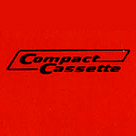 Annual cassette mix tapes up to year 2000 - under construction
Annual cassette mix tapes up to year 2000 - under construction
 2001 - Dangerously in love
2001 - Dangerously in love
 2002 - Back to basics
2002 - Back to basics
 2003 - Dangerously in love 3
2003 - Dangerously in love 3
 2004 - International
2004 - International
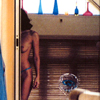 2005 - Punani Palace
2005 - Punani Palace
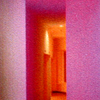 2006 - Romance explosion
2006 - Romance explosion
 2007 - Eat it. Lick it. Snort it. Fuck it.
2007 - Eat it. Lick it. Snort it. Fuck it.
 2008 - Rakkaus on taistelukenttä
2008 - Rakkaus on taistelukenttä
 2009 - Glamourphonic electronic disco baby
2009 - Glamourphonic electronic disco baby
 2010 - Teen hysteria
2010 - Teen hysteria
 2011 - NSFW: Not Safe for Work
2011 - NSFW: Not Safe for Work
 2012 - Rogered senseless
2012 - Rogered senseless
 2013 - No half measures
2013 - No half measures
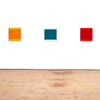 2014 - Baller$
2014 - Baller$
 2015 - Mach keine Gefangenen!
2015 - Mach keine Gefangenen!
 2016 - Das Leben im Krieg
2016 - Das Leben im Krieg
 2017 - Moshi Moshi
2017 - Moshi Moshi
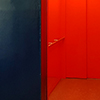 2018 - Trapped
2018 - Trapped
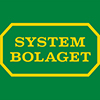 2019 - Systembolaget
2019 - Systembolaget
 2020 - Punani Dasani
2020 - Punani Dasani
